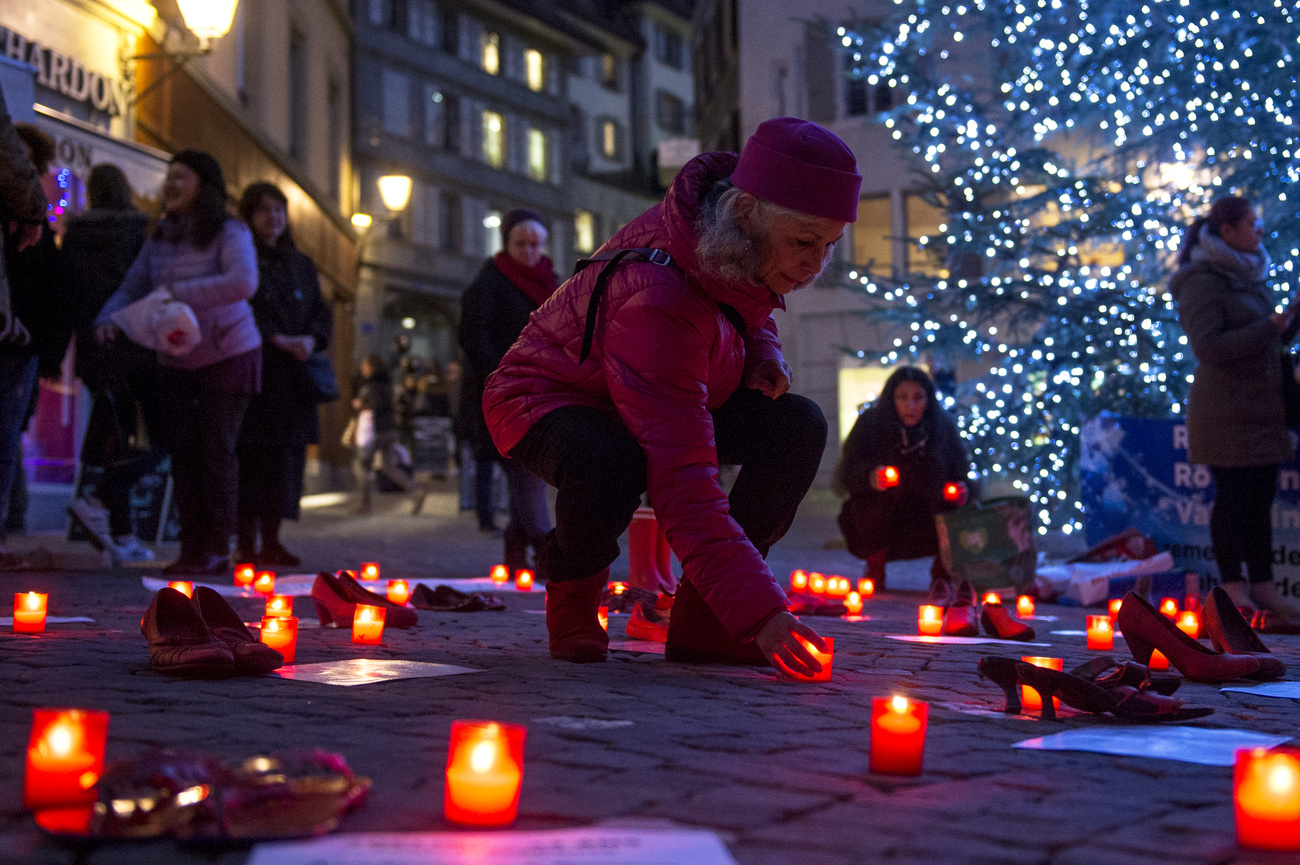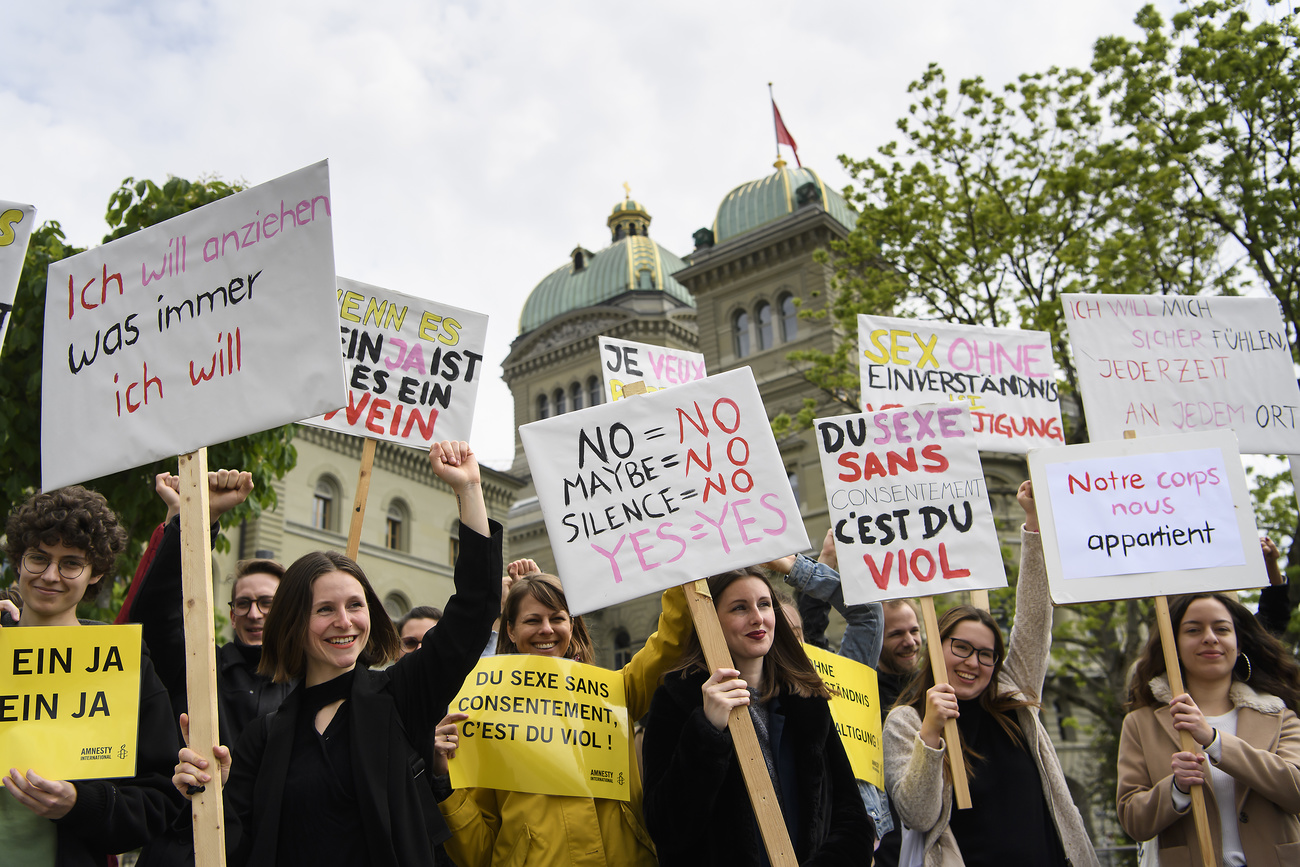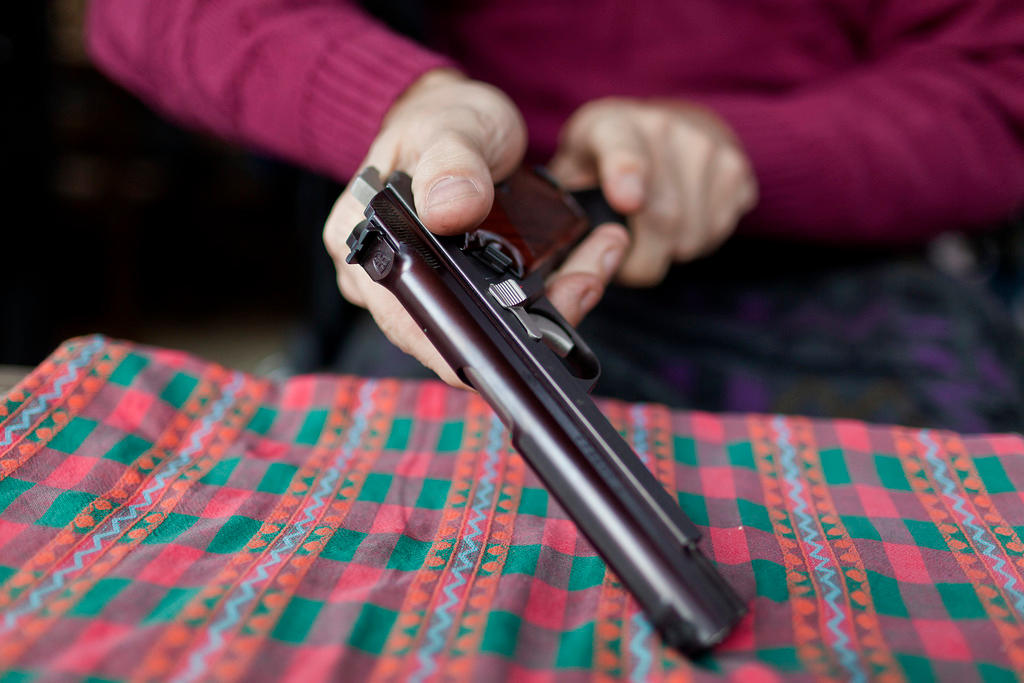Domestic violence in Switzerland: the suffering behind the stats

Switzerland is internationally known for its low crime rate, but when it comes to domestic violence, women in the country face a different situation. Ahead of the United Nations day for the elimination of violence against women on November 25, we look at what's behind the stagnating progress on lowering Swiss domestic violence levels.
Imagine not feeling safe in your own house, fearing the very person you share your life with, not being able to even make a phone call to save your life, or being followed everywhere you go. Seeking help is extremely hard for victims of domestic abuse.

“They often feel ashamed and incredibly isolated, so we want to provide safe and accessible points where they can ask for help – and pharmacies are the perfect places for this,” says Maribel Rodriguez, director of canton Vaud’s Office for Equality between Women and Men.
On Monday, the office launched a new initiative whereby pharmacies in the cantons of Vaud, Geneva and Neuchâtel where staff are trained to provide support for domestic violence victims have a label on their windows. This comes just a few days after Italy has been shaken by the barbarous killing of a 22-year-old woman by her ex-boyfriend, prompting national and international media to discuss the widespread issue of gender-based violence and femicide. But is the situation in Switzerland much better?
Why is domestic violence not decreasing in Switzerland?
In 2022, Swiss police registered over 19,000 cases of domestic abuseExternal link. If we compare this to other countries such as England and Wales, which recorded a combined 1.5 million domestic abuse-related incidentsExternal link, the number might look reassuring. However, if we take a closer look, the figure tells a different story.
The number of domestic violence crimes increased by only 3.3% in 2022 compared to the previous year, “but this could be largely due to the fact that more people are reporting the issue, so fundamentally we’re seeing a stagnation of domestic violence in Switzerland,” Gian Beeli from the Federal Office for Gender Equality told SWI swissinfo.ch.
The problem is precisely this stagnation. Rodriguez explains how her team is already working on many projects to provide victims with safe houses and improve communication among cantonal police offices, but “domestic violence is hopelessly stable in Switzerland. Despite all the work we’ve been doing with local entities and hospitals, these figures don’t seem to be falling,” she says.
While homicide rates in Switzerland are low, the number of women killed by their partners, ex-partners or family members is still high. Domestic homicides accounted for around 59% of all homicides committed in Switzerland in 2022.

More
Why counting femicides is a global issue
Women’s shelters under pressure
And if it’s true that more victims are now reporting domestic abuse, Switzerland might not be ready to sustain their needs in the near future. “More and more people are calling us and asking for help, but shelters are not getting bigger and we don’t have enough places,” explains Blertë Berisha, co-director of DAO, the umbrella organisation for women’s refuges in Switzerland and Liechtenstein.
In 2022, practically all the places in women’s shelters were occupied and, as a result, staff was under pressure and some women had to be hosted in hotels. “This situation is unacceptable given the risk and urgency of such cases,” says Berisha.
She is now asking for more support both at the cantonal and federal level. “We need secure and stable funding, not just ad-hoc financing, she says”. However, on WednesdayExternal link the Swiss government set the financial priorities for the next legislative period and “they have decided to scale down and postpone campaigns for equality”, says Beeli.
Switzerland singed the Council of Europe’s Istanbul convention in 2017, which means that the Alpine country is committed to preventing and combating these forms of violence, but there is still a long way to go. “The reality is that Switzerland is still lagging behind in terms of offering specific safe spaces for vulnerable people,” continues Berisha.
+Read more: ‘Invest money’ to stop violence against women
For example, Switzerland only has one girls’ shelter and no safe houses for the LBGTQ+ community, disabled people and women with mental illnesses. “This is simply not enough,” Berisha says. “Especially because domestic violence is a social challenge. I can see that in Swiss society there is a tendency to blame migrants for such crimes, but the truth is that they are a product of the patriarchal society we live in”.
The real issue, Berisha says, is that gender violence is the result of a patriarchal mentality that reduces women to men’s property. “It’s depressing to think that domestic violence is just the tip of the iceberg. There are women who suffer in silence for years, physically and psychologically, and we often don’t know what’s really going on. We’re completely blind,” adds Rodriguez, who believes a cultural shift is needed.
“We need to start from education, we need to teach young people to respect women and not to perpetrate this violence in their generation too. Domestic violence is not an isolated phenomenon, it’s deeply rooted in our society”.
How does Switzerland compare internationally on domestic violence?
On an international level, it is extremely difficult to compare figures of domestic violence and femicides, especially because not everyone agrees on this term and countries record homicides of women in the private sphere in different ways. “In Switzerland we have decided not to use the word femicide because there is no clear definition of it,” explains Beeli.
A statistical analysis by the United Nations Office on Drugs and Crime (UNODC) draws a partial comparison of its member states and in 2020 the number of homicides of women and girls by a family member or partner per 100,000 residents was higher in Switzerland than countries like Italy, Spain and France. The Swiss figure was however lower than countries like Finland, Germany and Iceland. Despite its limits, the UNODC data reveals that Namibia, Russia and Argentina recorded the highest levels.
Despite its reputation for being one of the safest countries in the world, Switzerland still had a higher rate of homicides of women in the domestic sphere compared to the European average in 2021. “So it is also our duty to eradicate those traditionally held stereotypes about the role of women which often lead to violence against women,” concludes Beeli.
Edited by Virginie Mangin.

In compliance with the JTI standards
More: SWI swissinfo.ch certified by the Journalism Trust Initiative












You can find an overview of ongoing debates with our journalists here . Please join us!
If you want to start a conversation about a topic raised in this article or want to report factual errors, email us at english@swissinfo.ch.